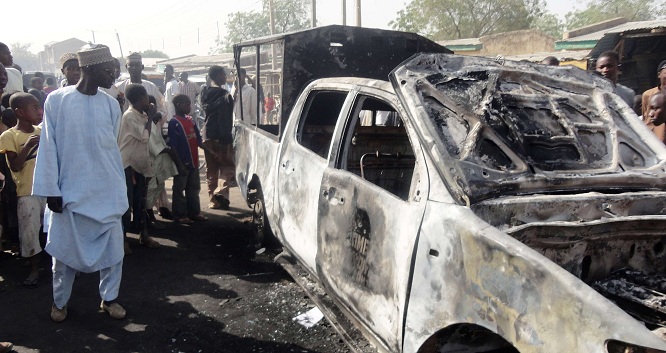A Giza criminal court acquitted 27 defendants of charges related to the storming of a police station in 2013 after the ouster of former president Mohamed Morsi.
The court, at a Central Security Forces camp in 6th of October City and led by judge Gamal Abdel Oula, cleared the 27 defendants of charges of attempting to break into Osim police station, joining a terrorist group, and possessing weapons.
One accused Muslim Brotherhood leader named Mahmoud Amer was cleared of planning and inciting the attacks that took place following the bloody dispersal of the pro-Morsi Rabaa Al-Adaweya and Nahda sit-ins in August 2013.
In similar news, during the last week of July, the Alexandria Criminal Court acquitted 100 alleged Muslim Brotherhood members accused of violence in clashes in the city’s Sidi Bishr area in December 2013. The accused faced a number of charges, including joining an armed group, aiming to spread chaos and incitement to hatred of the army and police, and participation and incitement to violence. Defendants included prominent Brotherhood figures such as Mostafa Gomaa, son of former Deputy Supreme Guide Gomaa Amin.
Acquittals of alleged Brotherhood members are rare in Egypt amid a sweeping crackdown on individuals and organisations associated with the movemen,t following the regime change that ousted Morsi.
At least 600 Muslim Brotherhood members were killed in the weeks following Morsi’s ouster, and the group was outlawed and ruled a terrorist organisation. Their members have faced mass trials in a judicial system that human rights groups have criticised as ‘political’, and are roundly accused of undertaking terrorist activities by politicians and media.
In September 2013, after a Cairo court initially banned the Brotherhood’s activities a panel was established to confiscate the assets and property of Brotherhood-linked organisations.
The Ministry of Social Solidarity announced earlier in July that, since the 2013 regime, some 434 organisations with links to the Brotherhood movement have been shuttered. Many of the shuttered NGOs provided support for the needy, which has raised questions about whether alternative provisions will be provided.


